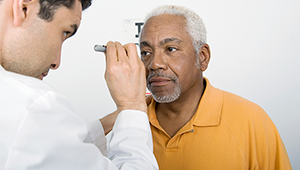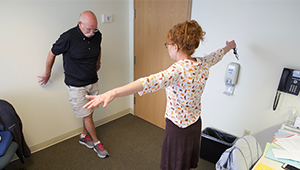Lessons about aging from COVID-19

Eric Larson, MD, MPH, shares ways to reduce social isolation and loneliness, no matter the cause
By Eric B. Larson, MD, MPH, senior investigator and former executive director of Kaiser Permanente Washington Health Research Institute (KPWHRI) and former vice president for research and health care innovation at Kaiser Permanente Washington
You may have seen the staggering news that 1 in 500 Americans have died of COVID-19. The numbers are much higher for older people. And news reports tell us regularly that the crowded hospitals, and particularly intensive care units, are filled with COVID-19 patients and leading to delays in acute care.
Yet even as pandemic headlines focus on death rates and hospitalizations, we face a less well-known problem that doesn’t always make the news — social isolation and loneliness that result from how we protect ourselves and others from the virus.
One source of evidence about the impact of this isolation, along with ways to prevent or lessen it, comes from the long-running Adult Changes in Thought, or ACT, study at Kaiser Permanente Washington Health Research Institute and the University of Washington.
We recently surveyed our ACT study participants who are all over age 65. Compared to before the pandemic, depression increased on average among survey participants. Respondents reported more loneliness and less physical activity. While many were able to adjust, for some the increase in depression was alarming and clinically noteworthy. These changes have huge quality-of-life consequences for older people.
Preventing COVID depression
The good news is that ACT and other studies show there are ways to be resilient to the loss of wellbeing that can accompany isolation, no matter the cause. Among the ACT study participants, we’ve seen many people who’ve been remarkable at adapting and finding new ways to build and maintain their social reserves. We can learn from people who are resilient to the shrinking of our social network that can happen as we age and lose friends and family members.
A key is maintaining social connections. Another is finding out what activities give your life meaning and pursuing them. One study participant — a longtime widow in her 90s — moved to a senior living community. Her challenges with mobility could have meant social isolation, inactivity, and more sadness. Instead, she exercises every day with online classes. A former professional writer, she now blogs for a newsletter. This routine keeps her physically and mentally active and connects her with the community of newsletter producers and readers.
In my research and in my life, I’ve met many people who have maintained connectedness and meaning in their lives as they age. These include my friend Wendy. When near retirement age, she trained to be a yoga instructor for seniors. On retirement from her job in marketing, she turned that training, plus being a grandmother and other family and community activities she loved, into a rich and meaningful life.
Doing and enjoying
I’ll leave you with my friend Bob, who in retirement realized a lifelong commitment to helping those in need. He and his wife started a low-cost community clinic, putting hours into a project that started small and eventually grew into an established service for their hometown. I think Bob’s advice for staying active and maintaining connections applies to anyone, no matter your situation or your abilities. He says to ask, “What needs to be done that you can do and that you enjoy doing?”
This blog originally appeared in 3rd Act Magazine.
Live Healthy

How to lower your risk of dementia
It’s never too late (or too soon) to take preventive steps.
Research

Cataract surgery linked with lessened dementia risk
JAMA Internal Medicine study finds cataract surgery associated with 30% lower risk of dementia in aging population.
New funding

Grant of over $55M to boost Alzheimer’s, dementia study
Kaiser Permanente Washington will co-lead an expanded ACT Program to better understand the aging brain.


